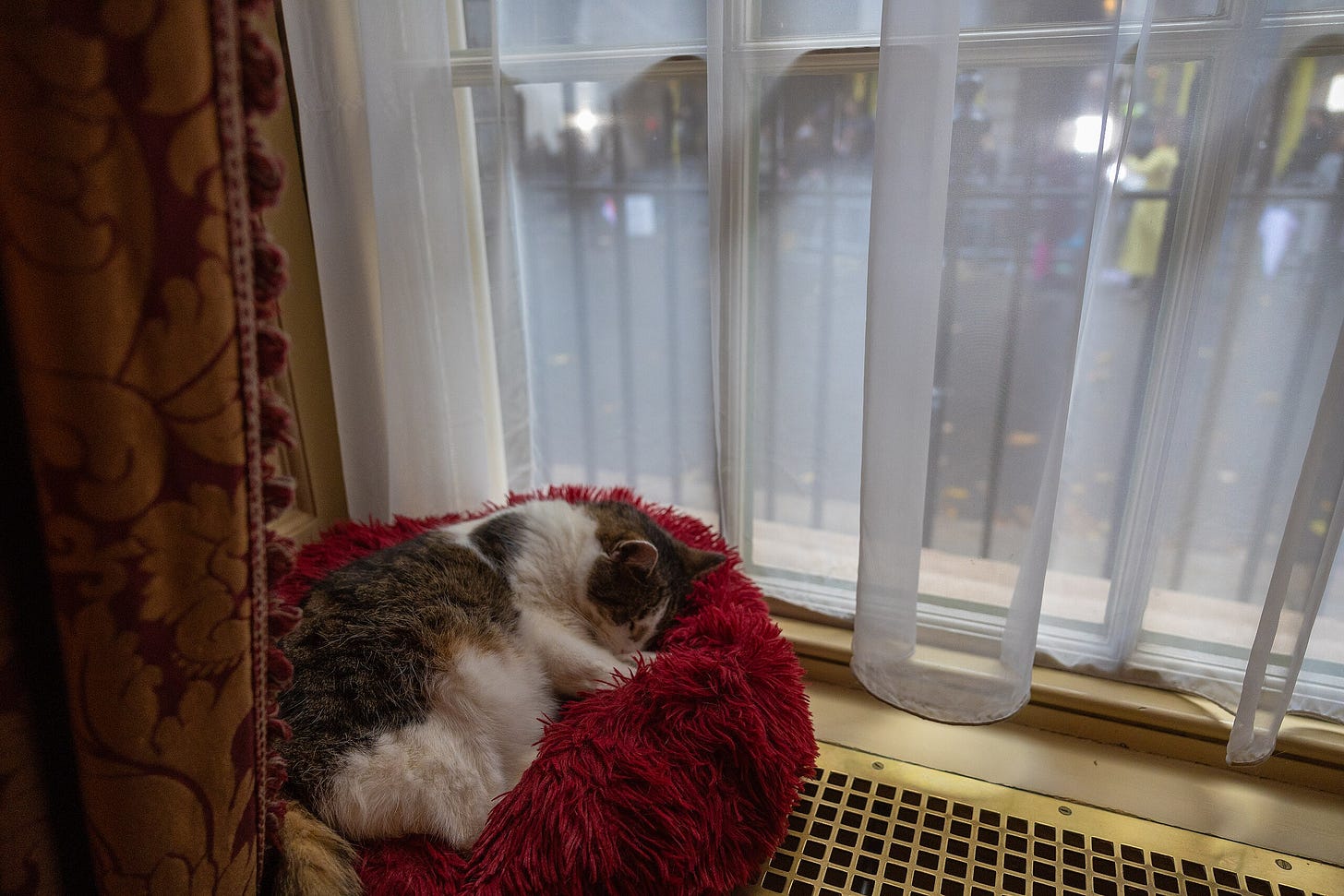Number 10’s Only Stable Resident
An exclusive interview with Larry the Cat - Britain’s longest-serving political figure, snarkiest observer, and unofficial conscience of Downing Street.
It isn’t every day that a Bear interviews a Cat to discuss the role of satire in British politics - though, to be fair, I do talk to my own fur daemon daily about all manner of things, so this felt oddly natural.
And who better to seek advice from on this subject than the country’s most famous cat?

Larry the Cat, Chief Mouser to the Cab…


